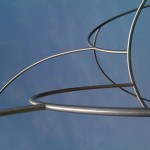From illiteracy, to literacy, to holiteracy
Our age, and the patterns, impacts, information flows and interconnections we are weaving – and that are weaving us – across unprecedented scales, are challenging us to develop a new form of literacy: a literacy of the whole.
To be effective, to be attentive, to be healthy in this age we need to become: holiterate.*
Our existing literacies – still vital – have brought us to a new point of illiteracy. And we stand before the new dimensions and possibilities of this emerging moment as illiterate in our own way as our pre-Mesopotamian and our pre-Gutenberg ancestors.
Aspects of this holiteracy are beginning to shape our understanding, discourse and practice already – visible, for example, in the development of holism, systems thinking, ecology and complexity science, and our enhanced powers of observation across ever smaller and larger scales (and, indeed, in the perception of Daologue, to which I have referred before).
Facets of this emerging holiteracy also appear to resonate with – and to re-emphasise – insights from other ages and other traditions whose different and subtle wisdom has been overwhelmed by the very practical success of our current literacies.
Nonetheless, as a society as a whole, embedded in our familiar institutions, categories and hierarchies, it is hard to escape the sense that we are befuddled in this urgent moment; like the inhabitants of Flatland encountering a sphere for the first time.
Developing this holiteracy – becoming holiterate – requires of us the same patient, playful, iterative, disciplined, learning-in-practice as our other literacies. It requires work and time: and challenges us all now – individually and collectively – to begin to embrace and explore, and to act creatively and wisely, in the new-glimpsed light of this beautifully strange and joyfully unsettling dawning moment.
*…in which the sense of iteration is as salient as the sense of the whole (as, from our limited perspective, the literacy of the whole is always partial, processual, provisional and collaborative).
Comments
Leave a Reply




